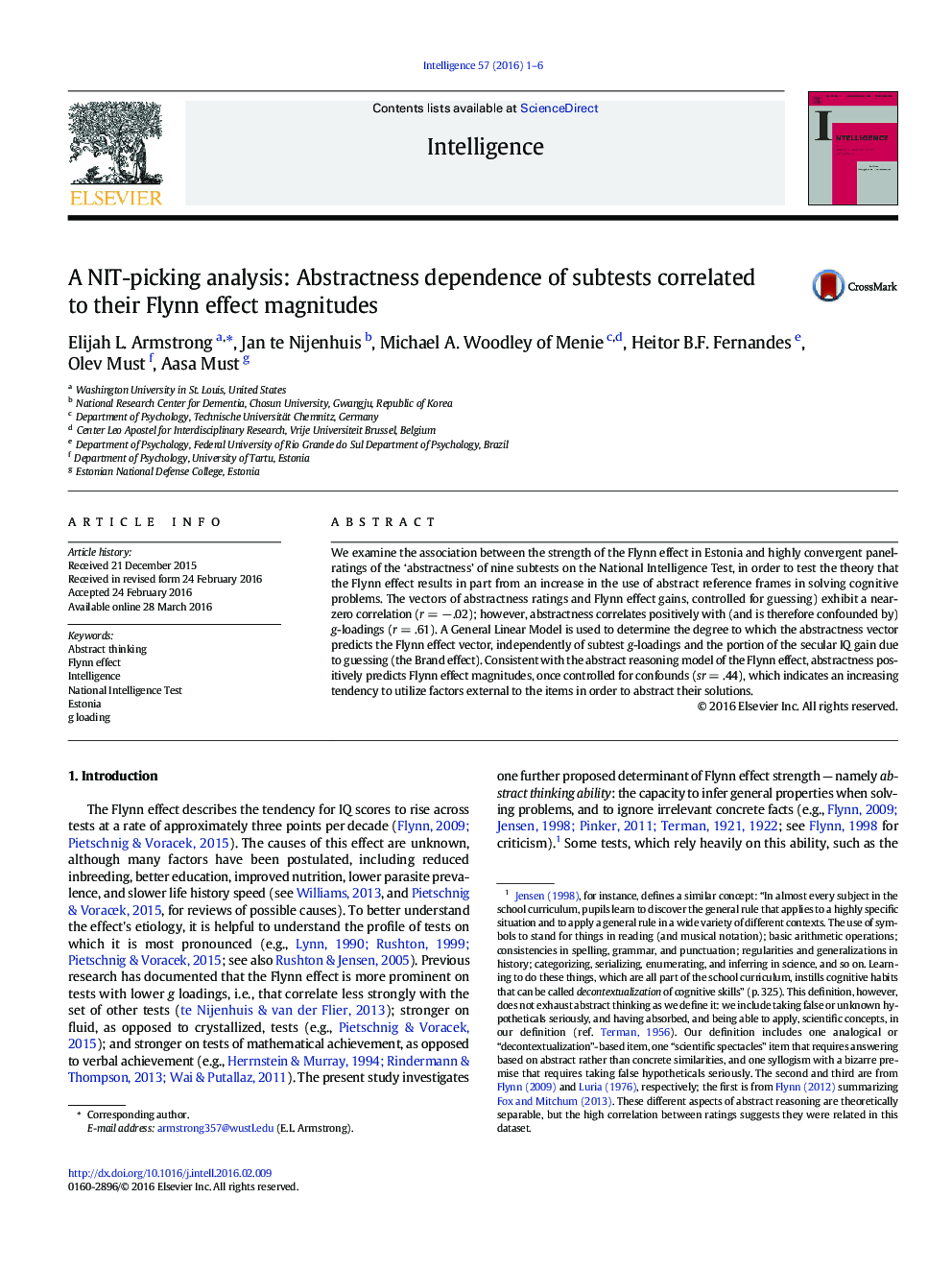| کد مقاله | کد نشریه | سال انتشار | مقاله انگلیسی | نسخه تمام متن |
|---|---|---|---|---|
| 928991 | 1474259 | 2016 | 6 صفحه PDF | دانلود رایگان |
• The theory that the Flynn effect is caused by increased abstract reasoning is tested.
• Ratings of the abstractness dependence of nine NIT subtest are obtained.
• The mean ratings were used to predict Flynn effects, yielding zero-order correlation.
• Controlling for Brand's effect and subtest g-loadings yielded a positive effect.
• This is consistent with an independent effect of abstractness on the Flynn effect.
We examine the association between the strength of the Flynn effect in Estonia and highly convergent panel-ratings of the ‘abstractness’ of nine subtests on the National Intelligence Test, in order to test the theory that the Flynn effect results in part from an increase in the use of abstract reference frames in solving cognitive problems. The vectors of abstractness ratings and Flynn effect gains, controlled for guessing) exhibit a near-zero correlation (r = −.02); however, abstractness correlates positively with (and is therefore confounded by) g-loadings (r = .61). A General Linear Model is used to determine the degree to which the abstractness vector predicts the Flynn effect vector, independently of subtest g-loadings and the portion of the secular IQ gain due to guessing (the Brand effect). Consistent with the abstract reasoning model of the Flynn effect, abstractness positively predicts Flynn effect magnitudes, once controlled for confounds (sr = .44), which indicates an increasing tendency to utilize factors external to the items in order to abstract their solutions.
Journal: Intelligence - Volume 57, July–August 2016, Pages 1–6
